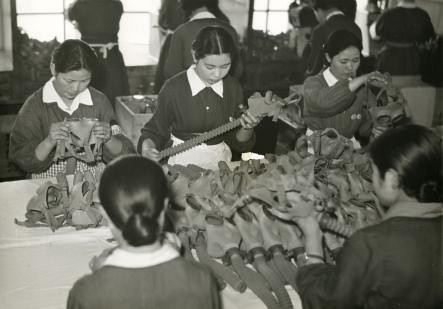
Saudi women covered up

American women in bikinis
I knew that I couldn't be the only women that took my rights for granted so I went out and interviewed three women on campus to see how they reacted to the ways in which women in Saudi Arabia were treated and how they themselves live their everyday lives. To collect my field reports I first asked a set of six basic questions:
1. What is your major?
2. How old are you?
3. Are you married? If so, did you choose your own husband?
4. Have you ever had a job? If so what did you do?
5. Have you ever voted?
6. Have you ever worn a bikini to the beach/pool/lake?
I then revealed the information that I had discovered to them and continued to ask the following six questions:
1. If you weren’t allowed to come to this university how would your life chances differ?
2. If you were given away by your family at the age of seven and turned into a sex slave how would your relationship with your family be?
3. If you couldn’t choose your husband and were assigned a man to marry can you imagine being happy with that person? Keep in mind that he chooses how you will carry out your day.
4. If you were like a Saudi women and were not able to go outside the home alone, describe for me three words that would reflect how you feel.
5. If all the men in the United States could vote, and you couldn’t simply because you were a female, how would you feel that they are deciding how you are to live your life? And why do you think it is important that you have a voice and opinion in the societal structure?
6. Since women in Saudi Arabia are forced to cover up their entire bodies and faces in public in very high temperatures, do you think you could switch roles with them for one day? How different do you think the garment industry would be in the United States if the values were the same as in Saudi Arabia?
Here are my field notes...
(click picture to view larger)



All of the girls couldn’t imagine living the life of a Saudi Arabian women. They were very upset with the thought of not having basic rights such as getting an education or working. Since all of the women I interviewed are college students they held very high expectations for themselves and how they were going to live out their career paths. It seems to me that if they were forced to answer to men and lacked independence they would not consider their lives enjoyable. It is interesting to explore different cultures and recognize the differences of values and morals because it helps people understand social structures. The American women I interviewed may not comprehend the ideas and ways of life of Saudi Arabia, but to Saudi women, it is what they know and are advised not to question.

Saudi women and girls outside

American women outside
But as Americans we are able to question such ideas and values. So here are some questions to consider after reading over information of the Saudi people. Could you imagine living in a place that didn't allow you to drive or go anywhere without an escort? Why do you think countries are still set in traditional ways of patriarchy? Do you think that social change can ever come about? If it did would it be a positive thing?
For more information on Saudi Arabian women, please check out these library reference at the WSU library:
Saudi Arabia in the balance: A Political Economy, Society, Foreign Affairs
(call # DS244.52 .S28 2005)
Women and Words in Saudi Arabia: The Politics of Literary Discourse
(call # PJ8005 .A87 1994)
Click HERE to open the feedback tool.











